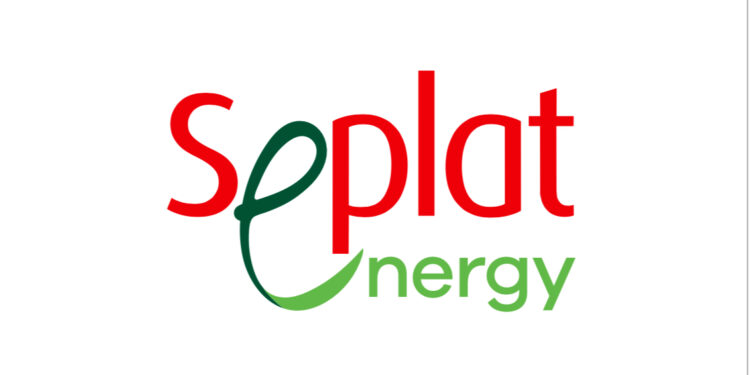Seplat Energy Plc: Navigating Turbulent Waters with Strategic Resilience

Seplat Energy Plc, a leading player in Nigeria’s energy sector, has demonstrated remarkable resilience and adaptability in the face of adversity. The company’s diversified asset portfolio, strong financial position, and experienced management team have enabled it to navigate the challenges of Nigeria’s energy sector. With a strong focus on cash management, Seplat has effectively re-jigged its debt profile, collecting payments from debtors more quickly and paying its creditors more efficiently.

In a year marked by volatility in the global energy market, Seplat Energy Plc has demonstrated resilience in the face of adversity. The company, a leading player in Nigeria’s energy sector, has posted a profit before taxation of ₦878.99 billion for the nine months ended September 30, 2025, compared to ₦366.71 billion in the corresponding period of 2024.
The increase in profit can be attributed to a 213% rise in revenue, which swelled from ₦1,070.90 billion in 2024 to ₦3,356.19 billion in 2025. Much of the success can be pinned to the company’s strategic focus on growing its production portfolio, optimizing costs, and leveraging its strong partnerships.
However, the cost of sales also increased, rising from ₦539.38 billion in 2024 to ₦2,000.18 billion in 2025, representing a 271% increase. The company’s operating expenses also rose, from ₦143.54 billion in 2024 to ₦261.88 billion in 2025, reflecting the impact of inflation and other macroeconomic challenges on the company’s operations.
Despite these challenges, Seplat was able to contain the pressure on its margins, with gross profit increasing by 155% from ₦531.52 billion in 2024 to ₦1,356.00 billion in 2025. The company’s operating profit also rose, increasing by 166% from ₦411.34 billion in 2024 to ₦1,096.21 billion in 2025.
The company’s profit after taxation stood at ₦146.64 billion, compared to ₦52.78 billion in 2024, representing a 178% increase. The company’s management has demonstrated a commitment to creating value for shareholders, with earnings per share increasing from ₦98.37 in 2024 to ₦240.18 in 2025.
Seplat’s balance sheet remains strong, with total assets of ₦9,052.83 billion and total equity of ₦2,697.70 billion. The company’s cash management ability has also improved, with a decrease in days receivable from 34 days in 2024 to 26 days in 2025. The company’s inventory management has also improved, with inventory days decreasing from 93 days in 2024 to 84 days in 2025.
The company’s management has indicated its commitment to investing in the business, with a capital expenditure program of ₦9.62 billion planned for the year. This investment is expected to drive growth and improve the company’s competitiveness in the market.
Analysts say Seplat’s performance underscores the challenges facing the energy sector in Nigeria. However, they also note that the company’s strong brand portfolio, diversified business model, and commitment to operational excellence position it well to navigate the challenges and capitalize on opportunities in the market.
The company’s focus on safety and sustainability is also commendable, with a Lost Time Injury Frequency (LTIF) of 0.12, indicating a strong commitment to safety and operational excellence. Seplat’s CO2 emissions intensity from operated onshore assets also decreased by 21% from 32.0 kg/boe in 2024 to 25.2 kg/boe in 2025, reflecting the company’s commitment to reducing its environmental impact.
Overall, Seplat Energy Plc’s performance in the nine months ended September 30, 2025, reflects the company’s resilience and adaptability in the face of adversity. With its strong brand portfolio, diversified business model, and commitment to operational excellence, the company is well-positioned to navigate the challenges and capitalize on opportunities in the market.
The company’s days receivable has decreased from 38 days in 2024 to 26 days in 2025, indicating improved cash flow management. Additionally, Seplat’s inventory management has also improved, with inventory days decreasing from 93 days in 2024 to 84 days in 2025. This suggests that the company is managing its inventory more efficiently, with less stock sitting in warehouses. The overall cash cycle has improved, falling from 82 days in 2024 to 82 days in 2025, indicating that the company is managing its working capital more efficiently.
However, Seplat’s liquidity position has been under pressure, with the current ratio decreasing from 1.02 in 2024 to 0.95 in 2025. This is largely due to an increase in short-term borrowings, which has increased from ₦115.70 billion in 2024 to ₦90.97 billion in 2025. Despite these challenges, Seplat has taken steps to improve its financial position, including reducing its term loans and investing in new facilities. The company plans to invest ₦9.62 billion in capital expenditure, a significant increase from the ₦1.2 billion invested in the previous year.
This investment is expected to drive growth and improve the company’s competitiveness in the market. Analysts say the company’s focus on cash management and investment in new facilities is a positive step, and is expected to drive growth and improve the company’s financial position in the long term. Seplat’s commitment to safety and sustainability is also commendable, with a Lost Time Injury Frequency (LTIF) of 0.12, indicating a strong commitment to safety and operational excellence.
The company’s CO2 emissions intensity from operated onshore assets also decreased by 21% from 32.0 kg/boe in 2024 to 25.2 kg/boe in 2025, reflecting the company’s commitment to reducing its environmental impact. Seplat’s exploration of opportunities in gas and renewable energy is a positive step towards diversifying its portfolio and reducing its carbon footprint.
To capitalize on these opportunities, Seplat needs to address its weaknesses and leverage its strengths. The company should focus on optimizing its operating costs, improving its access to capital, and diversifying its revenue streams. Seplat should also continue to invest in its people and technology to enhance its operational efficiency and competitiveness.
The Nigerian energy sector is expected to continue growing, driven by population growth and economic development. Seplat is well-positioned to capitalize on this growth, given its strong brand portfolio, diversified business model, and commitment to operational excellence. However, the company faces significant challenges, including oil price volatility, regulatory uncertainty, and insecurity. To navigate these challenges, Seplat needs to maintain its focus on cost optimization, operational efficiency, and sustainability.
In conclusion, Seplat Energy Plc has demonstrated resilience and adaptability in the face of adversity. The company’s strengths, opportunities, and commitment to sustainability position it well to navigate the challenges and capitalize on opportunities in Nigeria’s energy sector. With a strong management team and a focus on sustainability and operational excellence, Seplat is poised to drive long-term success and create value for its shareholders.




